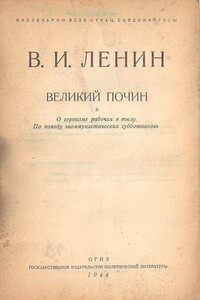Нации и этничность в гуманитарных науках. Этнические, протонациональные и национальные нарративы. Формирование и репрезентация | страница 23
Очевидно, что титулы правителей несли в себе особую роль в отношении сакрализации как наследуемой по принципу передачи или заимствования титула, становившегося сакральным. Это стоит отметить в отношении титулов «тегин», «тархан», «джабгу». Кроме функции обозначения занимаемого поста в каганате, эти титулы несли сакральную нагрузку, делая их обладателей более значимыми в среде тюркской элиты. С первых шагов государственной истории тюркское общество было строго ранжировано. Место и политический вес члена общества во многом определялись его титулом, нередко наследственным, закреплявшим положение его носителя в системе социальных связей и соподчинений.
Очевидно, что древнетюркский и кыргызский корпусы титулатуры теснейшим образом связаны между собой. Получение титула было очень важным моментом в жизни представителя правящего слоя государства. Часто это событие и описание заслуг фиксировалось в эпитафии. Принятие кыргызским правителем титула каган означало не только политический акт, но и претензию на обладание сакральностью кагана во всей ее полноте.
Ключевые слова: Средневековье; тюрки; власть; религия; сакрализация; правитель.
SACRALIZATION OF THE TERMINOLOGY OF POWER BY EARLY MEDIEVAL TURKIC PEOPLES OF CENTRAL ASIA
Medieval people shared perceptions about divinity of the governor – the bearer of the idea of the order, the participant of cosmological actions. Deification of the heads of the state was the important collective-psychological prerequisite of the processes of integration in Central Asian nomad societies. In our opinion, Turkic and Kirghiz governors possessed similar sacral positions. However, sources do not contain direct and solid description of the system of such perceptions. At the same time, the tradition of interpreting power in the categories of «sacred», as well as any other phenomenon of culture, could not disappear, not having left any information. Modern researchers should pay great attention to decoding such information.
Obviously, the titles of governors played a special role in the attitude towards sacralization, which was inherited and, thus, the title became sacral, which should be noted as far as the titles «tegin», «tarhan», «jabgu» are concerned. Besides the function of denomination of the occupied position in the Khaganate, these titles had sacral meaning, making their owners more significant in the environment of Turkic elite. From the first steps of the history of the Turkic state the Turkic society was strictly hierarchical. The place and political heft of a member of society were in many respects defined by his title, quite often hereditary, which strengthened the position of its bearer in the system of social communications.






